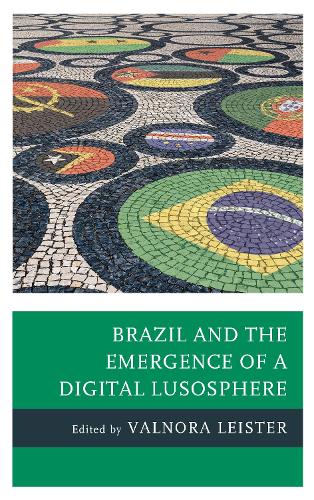
Brazil and the Emergence of a Digital Lusosphere
(Paperback)
Available Formats
Publishing Details
Brazil and the Emergence of a Digital Lusosphere
By (Author) Valnora Leister
Contributions by Jos Gabriel Andrade
Contributions by Patrisia Ciancio
Contributions by Jacqueline Cunha da Serra Freire
Contributions by Elisangela Andr da Silva Costa
Contributions by Sinara Mota Neves de Almeida
Contributions by Mark C. Frazier
Contributions by Elcimar Simo Martins
Contributions by Valnora Leister
Contributions by Floreno Mendes Varela
Bloomsbury Publishing PLC
Lexington Books
28th September 2020
United States
Classifications
Professional and Scholarly
Non Fiction
Media studies
302.230981
Physical Properties
Paperback
224
Width 154mm, Height 221mm, Spine 17mm
340g
Description
This book maps how Brazil and the network of Portuguese-speaking countriesthe Lusosphereare using digital technologies in new ways to expand opportunities at all levels of society. From a diverse range of perspectives across the Portuguese-speaking world, contributors to this volume explore such questions as the capability of information technologies to encourage social inclusion in the face of economic inequality, the kinds of cultural values that may replace those of the scarcity-based industrial era, and the potential emergence of a virtual world order based on soft power, given the failures of hard power alternatives. This book explores how digital linkages between Brazil and physically-separated Portuguese-speaking communities are influencing the arts, creative industries, sports, learning, business, and cultural evolution for hundreds of millions of Portuguese-speaking people on five continents. At a time of escalating calls in Europe and North America to close borders and build walls, Brazil and the Emergence of a Digital Lusosphere charts alternatives that offer inspiration and practical paths toward a more inclusive world.
Reviews
The digital era is connecting the world in extraordinary ways. While the internet has generated tensions and disruption, it is also facilitating political, social, cultural and economic ties spanning vast geographies. Valnora Leister's edited volume explores the relationships between new information technologies and the so-called Lusosphere. Despite their formidable impact on international affairs over the past seven centuries, there is little discussion about how the Portuguese-speaking community is navigating the twenty first century. Leister and her contributing authors help fill this knowledge gap, exploring the ways in which the net is enhancing the 'soft power' of Lusophone nations, including values associated with acceptance, diversity and tolerance. In the process, Leister offers a hopeful and compelling vision for a world based on principles and practices of inclusion rather than reactionary nationalism. -- Robert Muggah, Igarap Institute
In 2004 I suggested that in addition to the English-speaking world, the other great globe-spanning digital cultural-linguistic communities merited study as entities in and of themselves, and coined the parallel term Lusosphere for the Portuguese-speaking world, as one such. Now I am delighted to see Valnora Leister and her contributors take the lead in an excellent book doing exactly that. This is a readable, thought-provoking effort that is worthwhile reading for Lusophones, Lusophiles, or just anybody interested in the shape of our common future. -- James C. Bennett, author of "The Anglosphere Challenge: Why the English-Speaking Nations Will Lead the Way in the Twenty-First Century"
Author Bio
Valnora Leister teaches at James Madison University.
